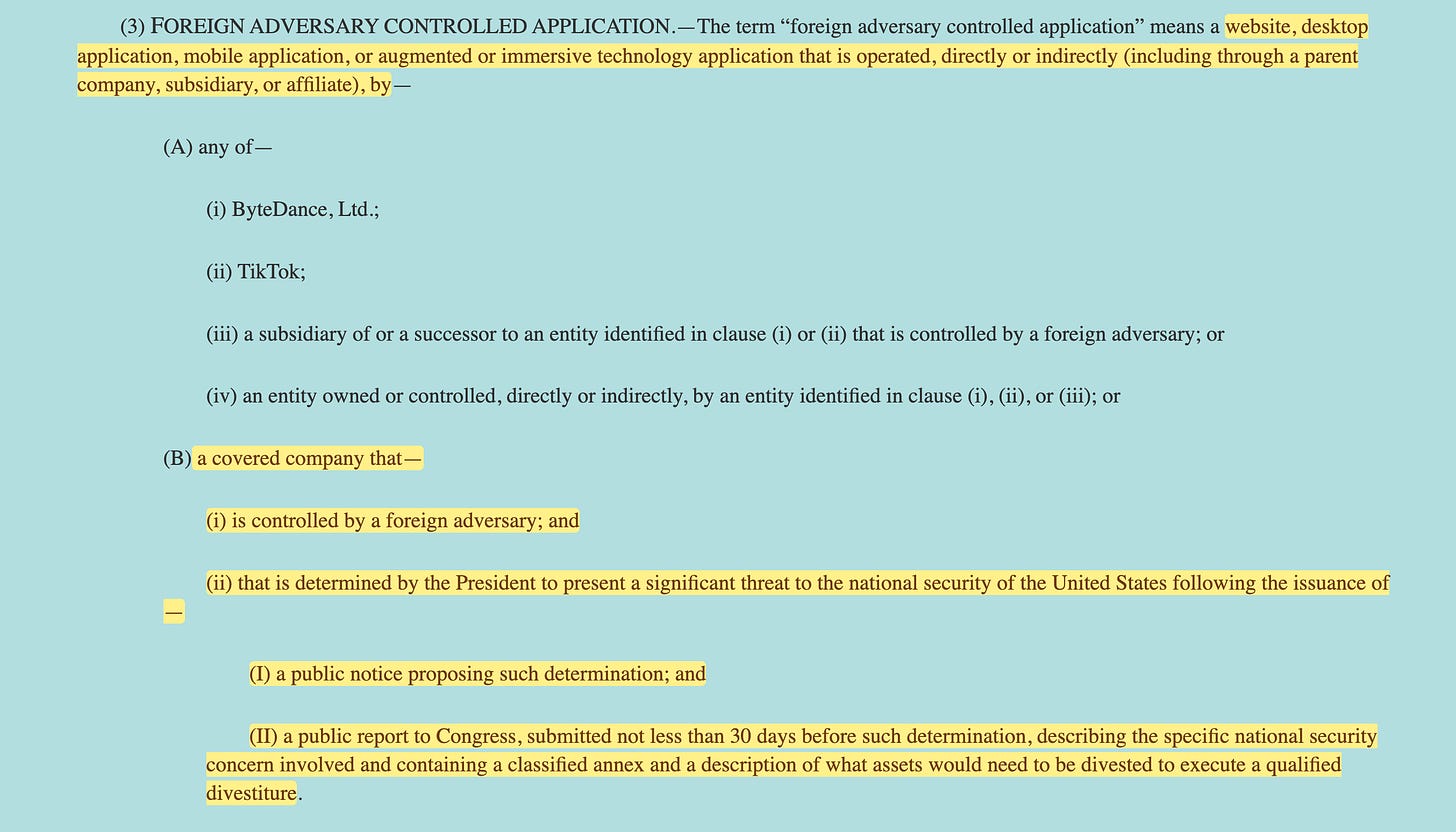Why the TikTok Ban is So Dangerous
“This is not an attempt to ban TikTok, it’s an attempt to make TikTok better,” is how Nancy Pelosi put it. Congress, the theory goes, will force TikTok to divest, some kindly Wall Street consortium will gobble it up (“It’s a great business and I’m going to put together a group to buy TikTok,” Steve Mnuchin
told CNBC), and life will go on. All good, right?
Not exactly. The bill passed in the House that’s likely to win the Senate and be swiftly signed into law by the White House’s dynamic Biden hologram is at best tangentially about TikTok.
You’ll find the real issue in the fine print. There, the “technical assistance” the drafters of the bill reportedly received from the White House shines through, Look particularly at the first highlighted portion, and sections (i) and (ii) of (3)B:

As written, any “website, desktop application, mobile application, or augmented or immersive technology application” that is “determined by the President to present a significant threat to the National Security of the United States” is covered.
Currently, the definition of “foreign adversary”
includes Russia, Iran, North Korea, and China.
The definition of “controlled,” meanwhile, turns out to be a word salad, applying to:
(A) a foreign person that is domiciled in, is headquartered in, has its principal place of business in, or is organized under the laws of a foreign adversary country;
(B) an entity with respect to which a foreign person or combination of foreign persons described in subparagraph (A) directly or indirectly own at least a 20 percent stake; or
(C) a person subject to the direction or control of a foreign person or entity described in subparagraph (A) or (B).
A “foreign adversary controlled application,” in other words, can be any company founded or run by someone living at the wrong foreign address, or containing a small minority ownership stake. Or it can be any company run by someone “subject to the direction” of either of those entities. Or, it’s anything the president says it is. Vague enough?
As
Newsweek reported, the bill was fast-tracked after a secret “intelligence community briefing” of Congress led by the
FBI,
Department of Justice, and the
Office of the Director of National Intelligence (ODNI). The magazine noted that if everything goes as planned, the bill will give Biden the authority to shut down an app used by 150 million Americans just in time for the November elections.
Say you’re a Democrat, however, and that scenario doesn’t worry you. As
America This Week co-host Walter Kirn notes, the bill would give a potential future President Donald Trump “
unprecedented powers to censor and control the internet.” If
that still doesn’t bother you, you’re either not worried about the election, or you’ve been overstating your fear of “dictatorial” Trump.
We have two decades of data showing how national security measures in the 9-11 era evolve. In 2004 the George W. Bush administration
defined “enemy combatant” as “an individual who was part of or supporting Taliban or al Qaeda forces, or associated forces that are engaged in hostilities against the United States.” Yet in oral arguments of
Rosul et al v Bush later that year, the government conceded an enemy combatant could be a “
little old lady in Switzerland” who “wrote a check” to what she thought was an orphanage.

 nypost.com
nypost.com







